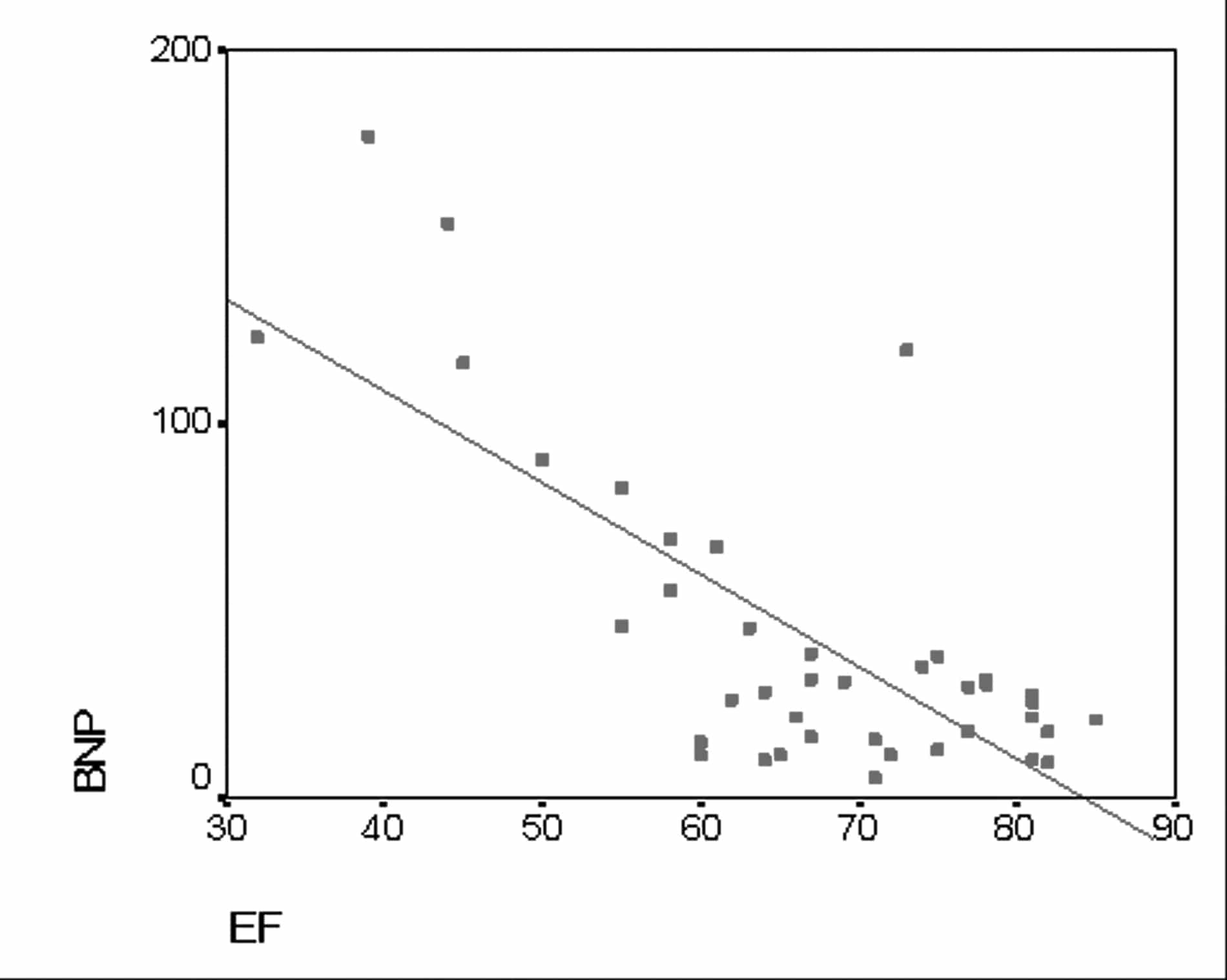Currently we are in the midst of a chronic disease epidemic of heart failure, one of the worst complications for primary hypertensive patients. Ejection fraction is an important measure for left ventricular function, as well as an indicator for the presence of heart failure (1&2). Earlier data suggests that B-type natriuretic peptide level partially reflects the ventricular pressure (3). The aim of this work is to investigate whether plasma concentration of BNP reflects the heart’s capability with the ejection fraction as the indicator. This study was approved by the ethical committee and consents from all the subjects were collected prior taking samples. It was conducted on 50 hypertensive patients referred for echocardiography to evaluate the ventricular function. Patients with diabetes mellitus, previous history of myocardial infarction were excluded from the study. The cardiologist making the assessment of left ventricular function was blinded to BNP levels. The BNP levels were assessed using the Triage Meter from Biosite Diagnostics. Results showed that BNP levels display a negative correlation with ejection fraction (Pearson correlation test) and it is clearly shown in the BNP versus ejection fraction scatter plot graph. The significant result (paired t test, p < 0.05) proves that both predictors are very important and relates to each other. The study which is the first to be conducted in Malaysia may be helpful in ruling out the diagnosis of heart failure or as the best screening method.
University College Dublin (2009) Proc Physiol Soc 15, PC161
Poster Communications: Correlation of plasma B-type natriuretic peptide level with ejection fraction in primary hypertensive patients
N. J. Nordin1, L. Muhamed2, R. Harun3
1. Physiology, Science Islam University of Malaysia, Kuala Lumpur, Wilayah Persekutuan, Malaysia. 2. Cardiology, Cyberjaya University College of Medical Science, Bangi, Selangor, Malaysia. 3. National University of Malaysia, Kuala Lumpur, Wilayah Persekutuan, Malaysia.
View other abstracts by:
Where applicable, experiments conform with Society ethical requirements.

